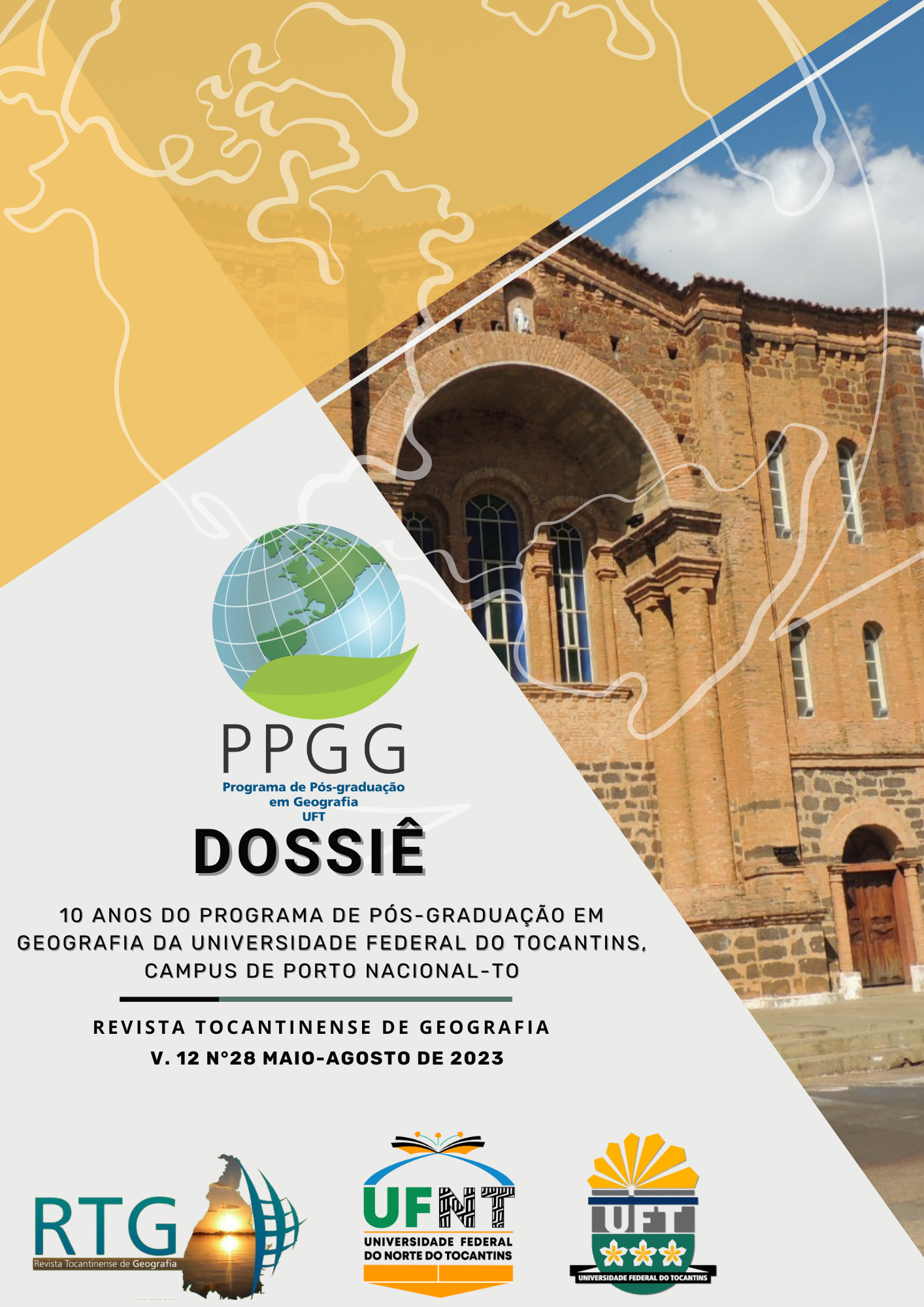MUNDIALIZAÇÃO DO CAPITAL NO SETOR SUCROENERGÉTICO BRASILEIRO
DOI:
https://doi.org/10.20873/rtg.v12i28.15556Palavras-chave:
Setor sucroenegético, Desregulamentação, Território, Mundialização, internacio-nalizaçãoResumo
O presente estudo tem como objetivo examinar a internacionalização da agricultura brasileira, com ênfase na produção sucroenergética, nos ares da mundialização, com vistas à circulação de capitais e bens na produção de etanol. A pesquisa justifica-se pelo fato do Brasil é o maior produtor de etanol de cana-de-açúcar, sendo um setor fundamental para a economia e o agronegócio brasileiro. A presente pesquisa recorreu à revisão bibliográfica e à elaboração de um referencial teórico para avaliar o tema em questão. A relevância do estudo está em aprofundamento dos debates acerca da Geografia Agrária e Econômica, áreas largamente debatidas na Ciência Geográfica. Concluímos que é necessário incentivar a emergência de forças endógenas de desenvolvimento, diante da internacionalização da agricultura brasileira. Para tal, é necessário que haja um projeto nacional e uma aliança estratégica entre agricultores, empresários e especialistas, construídos a partir de um profundo debate democrático.
Referências
ARBACHE, Jorge Saba. Comércio internacional, competitividade e políticas públicas. Instituto de Pesquisa Econômica Aplicada. Brasília, 2002.
ARROYO, M. Fluidez e porosidade do território brasileiro no contexto da integração continental. In: SILVEIRA, M. L. (Org.). Continente em chamas: globalização e território na América Latina. Rio de Janeiro: Civilização Brasileira, 2005, p. 209-242.
BENKO, Georges. Economia, espaço e globalização: na aurora do século XXI.Trad. Antônio de Pádua Danesi. São Paulo: Hucitec, 1996.
CASTILLO, Ricardo; ELIAS, Denise; PEIXINHO, Dimas; BÜHLER, Eve-Anne; PEQUENO, Renato; FREDERIO, Samuel. Regiões do agronegócio, novas relações campo-cidade e reestruturação urbana. Revista da ANPEGE, v. 12, p. 259-282, 2016.
CASTELLS, Manuel. Sociedade em Rede. 8ª ed. Tradução de Roneide Venancio Majer. São Paulo: Paz e Terra, 1999.
CHESNAIS, François. A mundialização do capital. Tradução Silvana Finzi Foá. São Paulo: Xamâ, 1996
EPE Empresa de Pesquisa Energética. Análise de Conjuntura de Biocombustíveis. 2021 Disponível em<: http://www.epe.gov.br/.> Acesso em 07 de jan de 2023.
FURTADO, João. Mundialização, reestruturação e competitividade: a emergência de um ovo regime econômico e as barreiras às economias periféricas. Novos Estudos. São Paulo, n. 53, p 97-1118, 1999.
HARVEY, David. Condição Pós-Moderna: uma pesquisa sobre as origens da mudança cultural. Tradução de Adail Ubirajara Sobral e Maria Stela Gonçalves. São Paulo: Edições Loyola, 2012.
HEIDRICH, Álvaro Luis. A relação entre espaço mundial e território nacional sob as dinâmicas da mundialização In: OLIVEIRA, M. P.; COELHO, M. C. N; CORRÊA, A. de M. (Orgs.) O Brasil, a América Latina e o Mundo: espacialidades contemporâneas. Rio de Janeiro: Lamparina; Anpege, Faperj, 2008, vol 1, p. 77-91.
IEA (2018), Renewables 2018, IEA, Paris. Disponível em <: https://www.iea.org/reports/renewables-2018. Acessado em 01/01/2023
IBGE. Instituto Brasileiro de Geografia Estatística. Censo Agropecuário de 2017.Disponível em < https://censos.ibge.gov.br/agro/2017/resultados-censo-agro-2017.htm> l Acessado em 01/01/2023.
FAO. Food and Agriculture Organization of the United Nations. Faostat, 2020. Disponível em: http://www.fao.org/faostat. Acesso em: jan. 2023. USDA.
United States Department of Agriculture. Sugar: world markets and trade, 2020. Disponível em: http://www.usda.gov. Acesso em: jan./2023.
. União da Industria de Cana-de-açúcar. Observatório da Cana, 2022. Disponível em: https://observatoriodacana.com.br. Acesso em: jan. 2023.
UNICADATA. Banco de dados da União da Indústria de Cana-de-Açúcar. 2018. Dis-ponível em: http://www.unicadata.com.br/. Acesso em: 26 de maio de 2021.
MINISTÉRIO DA AGRICULTURA, PECUÁRIA E ABASTECIMENTO. Exportações Brasileiras de Etanol - Comércio Exterior Brasileiro 2019. Brasília: MAPA, 2020.
MICHALET, C. O capitalismo mundial. Rio de Janeiro. Paz e Terra, 1983.
MICHALET, C. O que é mundialização. São Paulo. Loyola2003.
MOREIRA, M. M., CORREA, P. G. (1996). Abertura comercial e indústria: o que se pode esperar e o que se vem obtendo. Texto para Discussão 49. Rio de Janeiro: BNDES.
OLIVEIRA, A. U. A. Mundialização da Agricultura Brasileira. São Paulo: Iandé Editorial, 2016.
SANTOS, Milton. Por uma outra globalização: do pensamento único a consciência universal. 11 ed. Rio de Janeiro: Record, 2004.
A natureza do espaço: espaço e tempo, razão e emoção. 4 ed. São Paulo: Edusp, 2009.
SANTOS, Milton; SILVEIRA, Maria Laura. Globalização e geografia. A compartimentação do espaço. Caderno Prudentino de Geografia: dossiê geografia e globalização. Presidente Prudente, n 18, p. 5 a 17, Jul. 1996.
Downloads
Publicado
Como Citar
Edição
Seção
Licença
Copyright (c) 2023 Revista Tocantinense de Geografia

Este trabalho está licenciado sob uma licença Creative Commons Attribution-NonCommercial-NoDerivatives 4.0 International License.
A Revista Tocantinense de Geografia não remunera nenhum autor pela publicação de seus textos. Os conteúdos dos textos publicados neste periódico são de responsabilidade de seus autores.









.png)












